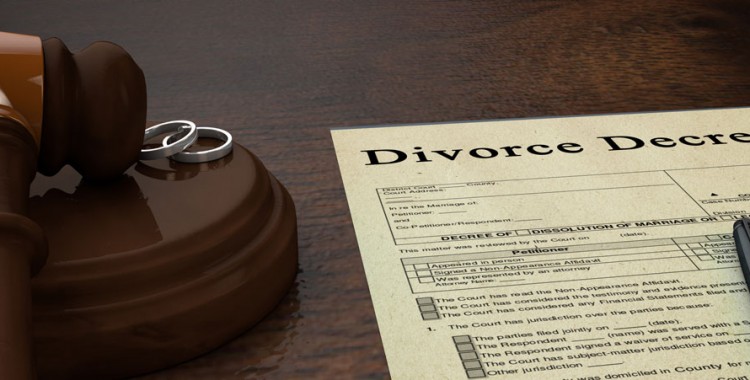NH Divorce & Family Law
Looking for a New Hampshire divorce lawyer specializing in family law who provides quality legal service?
We understand that many of our clients come to us during the most difficult time in their lives, and our goal is to provide them with cost-effective legal expertise that achieves a fair outcome. Our New Hampshire divorce lawyers provide the personal guidance our clients need to close this chapter of their lives and move on to the next, without delay and without spending money unnecessarily.
Family law involves divorce, alimony, child custody, child support, visitation, paternity, guardianship, adoption, and restraining orders. The following is a general overview of some of these topics in New Hampshire and are in no way a substitute for legal advice. Contact us today to schedule a consultation with an experienced family law and divorce lawyer, (603) 934-9837.
Reference Documents
- Filing an Emergency Motion
- Final Decree
- Financial Affidavit
- Petition for Grandparent Visitation
- Petition for Divorce
- Joint Petition for Divorce
- Parenting Plan
- Click here to read more in our library
- Click here for an on-line child support calculator
Divorce
Divorce is the process of dissolving a marriage and distributing the marital property, or debt, between the parties. In a no-fault, irreconcilable differences divorce; the court can order a divorce over the objection of the other party. The most common type of divorce is based on irreconcilable differences, but divorce can also be found on the fault of one of the parties. If fault is alleged, such as adultery, abuse etc, then the charges must be proven for the divorce to be granted. Accordingly, most divorces are filed as no-fault divorces. In a long-term marriage, the courts generally try to award a 50/50 split of the marital property. The parties will need to convince the court if a 50/50 distribution would not be equitable or fair. Fault on the part of either party can be grounds for an unequal property distribution. The process can involve many court appearances before reaching a trial, and may take in excess of a year to conclude.
Alimony
New Hampshire Courts sometimes order alimony payments (spousal support) to be paid by one spouse to the other to help support the recipient for a period of time. Alimony is meant to be rehabilitative and will only last for a limited period of time. Such an order would be based on one spouse’s ability to pay and the other spouse’s need for the alimony.
Child Custody
If child custody is being disputed, either one of the parents may file a Parenting Petition with the court for custody of a child. If the parties cannot agree about who should have primary residential responsibilities, the court will grant physical custody either solely to one of the parents or jointly to both of the parents. The standard for granting custody is the “best interest of the child.”
The law requires parents to create a “parenting plan” which must be filed and approved by the court. If the parents cannot agree on a plan, the court is authorized to draw up a parenting plan for the family.
Child Support
The custodial parent is normally entitled to child support from the other party. New Hampshire follows “child support guidelines,” for determining the amount of child support to be paid by the non-custodial parent. Child support is calculated by a mathematical formula that is roughly 25% of the paying parents income for one child, and 33% for two children and upwards. Child support is payable until the child reaches the age of 18, graduated from high school or becomes emancipated, which means moving away from either parents home and is self-supporting.
Click here for an online child support calculator
Paternity
This type of case is used to determine who the natural, biological parents are of a child. Parents who are not married can file for a determination of paternity of a child. The court can order the parents to submit to DNA testing and will make a finding of paternity based on proper test results.
Guardians Ad Litem (GAL)
Guardians are appointed when parents cannot agree to a custody and visitation arrangement for children. Typically the judge or marital master issues an order appointing a particular GAL to investigate specific issues that are in dispute. The court order will designate how much each party is required to pay the GAL unless the parties are indigent.
The GAL conducts an investigation, which may include interviewing the parents, the children and other persons who may have information relevant to the issues involved. In most cases the GAL prepares a written report which includes a recommended resolution of custody and visitation issues that, in the GAL’s estimation, is in the best interest of the children. The GAL may also be a witness at the custody hearing.
The judge or marital master makes the final determination after considering the GAL’s recommendation along with all of the other evidence presented in the case. However, the GAL’s recommendations are not binding on the court and the court may accept some, all, or none of the GAL’s recommendations.
Restraining Orders
A domestic violence restraining order is available on an emergency basis if you believe that a spouse, significant other, or person who you were romantically involved with has threatened you or is otherwise a credible threat to your safety. Orders can be obtained on an emergency basis by petitioning either a District Court or Superior Court near your home.
Recent Family Law News & Resources

Understanding Parenting Petitions in New Hampshire: Child Support & Asset Division for Unmarried Couples
Three Things to Know if You are Considering a Divorce After 50
Guardianship and Adoption are Not the Same
Custody (Parenting Time) and How It Can Be Divided
Divorce After Fifty
Parenting Issues in Family Court Cases

The Four Steps of Filing for Divorce in New Hampshire

New Hampshire Family Court Rule 1.25-A
Family Law FAQ
How Long Does a Divorced Take?
The new divorce law in New Hampshire establishes family law courts. But, with a rollout of this law and all the budget constraints, it has taken a little time to get these new courts up and running. But under this new system, you no longer go to Superior Court to get a divorce. You go to your local family court, which may be in your town or nearby. And these local family courts will have dedicated judges to hear family law cases. This system is supposed to reduce the delay in getting divorced. Under the new system, it should be months versus years that your divorce should take.
My Longtime Partner Just Moved Out and Wants Half the Value of My House. I Own it. What Do I Do?
If you purchased the house and the title is solely in your name, you likely have a strong legal claim to the property. However, there are certain circumstances where your girlfriend may have a claim to a portion of the house's value:
- Co-ownership: If you added her name to the property deed, she may have a legal interest in the house. Joint ownership would typically grant her a share of the property.
- Financial contributions: If she can demonstrate that she contributed to the down payment, mortgage payments, or improvements on the house, she might have a claim based on those financial contributions.
In the event that your girlfriend believes she has a valid claim to the property, she may pursue a legal action known as partition. In a partition action, the court will examine the property's ownership, financial contributions, and other relevant factors to determine if she is entitled to a portion of the property's value.
To protect your ownership interests in the future, it's advisable to ensure that property purchases and financial contributions are clearly documented and that property titles accurately reflect ownership intentions. Additionally, consulting with a real estate attorney can provide valuable guidance and help safeguard your property rights.
I’m Getting a Divorce and We Want to Have Equal Time With the Kids. Will I Still Get Child Support?
Under New Hampshire law, there are child support guideline formulas that require child support to be ordered at predetermined amounts unless an exception applies. One of those exceptions is when both parents equally share custody, and both make about the same amount of income. In those situations, the court can override the formula and not order child support. But those are the exceptions to the rule. In most cases, child support will be mandated even in situations where both parties would like to waive it. And shared custody means just that. The children are as much with you as they are with the other parent.
I'm divorced and pay child support, but my ex insists that on top of the child support, I have to pay half of all the other expenses, like soccer camp and piano lessons. Is that true?
Usually not. Your child support payment is already your total contribution towards all the costs of raising the kids. You typically don't add on to that all these other expenses. You could agree to contribute extra payments, believing that soccer and piano are worthy, but usually, these will not be ordered above child support.
If you agree to pay these expenses and later decide to stop, you could be faced with the argument that you are locked in forever.
Do I Have to Pay Child Support to My Ex if My Kids Decide to Go to College?
No, child support obligations typically end when the child reaches the age of 18 or graduates from high school, whichever comes later. While it is often a commendable choice to support your child's college education, the law does not mandate it. There used to be a provision in divorce law that required parents to contribute to college tuition, but this requirement was repealed a long time ago. Consequently, as a general rule, once your children have graduated from high school and turned 18, your financial obligations for child support come to an end. While providing financial support for your child's college education may be a personal decision, it is no longer a legal requirement.

